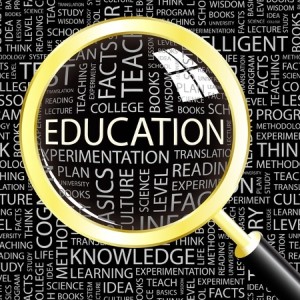Education is about conveying a set of skill and knowledge to the next generation.
Education systems are divided into different stages, including preschool, primary and secondary school followed by college, university or an apprenticeship. There are many different education systems around the world but they have a few things in common.
In most education systems, the advancement of students are measured thanks to assessments. Assessments take the form of tests, research projects or are the results of observations made by an instructor. Assessments are used to gauge whether or not a student acquired the set of skills and the knowledge required to progress to the next grade level.
Values in Education Systems
The values behind education systems differ greatly from one country to another. While some countries have an educational system that values creativity or independent thinking, other systems become a vehicle for more traditional values. Regardless of the values taught, schools are defined as a way of preparing children and teenagers for their lives as adults. Schools are also considered as a way of preserving knowledge and culture.
Socialization in Schools
Schools are also considered as a place of socialization. Preschool offers young children with the opportunity to socialize with one another. This socialization process actually continues until a student graduates from school and enters the job market. School is a place where one can develop friendships, learn values and social codes as well as finding one’s place in society.
Formal Education Systems
Formal education includes preschool, primary school, secondary school, tertiary or higher education as well as vocational education. Special education is also a part of formal education and is intended for students with learning difficulties. Alternative forms of education exist.
In some countries, alternative education exists because not all children have access to the formal educational system. In other countries, alternative education is a choice. A lot of students learn through both systems since they attend public school and experience a informal education opportunities at home or can do some self-directed learning thanks to resources such as books or the Internet. The educational encounter of each child is unique even though each country or culture tends to have a preferred model for education.
Schools are necessary in order to teach children how to communicate, socialize and function in society. The skills and the knowledge conveyed in school are believed to be the basis for culture. Education systems are always being reinvented thanks to the development of education theories or education psychology.

